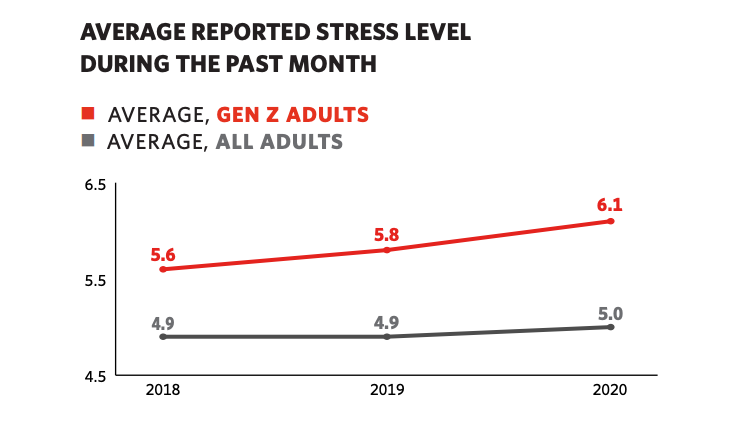I have only learned a few times about mental health in the 10 years I have been at WIS. There was a session about eating disorders, one about depression, and one about alcohol addiction. These sessions barely scratched the surface of how deep these issues truly are. Two of the sessions were in seventh grade and one was in eighth grade. Three total sessions. That number needs to be a lot higher.
Mental illness is one of the biggest issues facing our generation. 20% of American teens have a mental health issue, according to Mission Harbour. Stress factors may vary, but almost all teens report stress levels that rival those of adults, according to the APA. For many, it is hard to distinguish between simple stress for a test, and a mental health issue that overshadows a teen’s high school experience. Millions of teens are being affected and many don’t know how to ask or where to go for help.
WIS needs to start doing more on the subject of mental health. Schools that have enough resources, such as WIS, should use them to educate and spread awareness to faculty and students about mental health. Educating teens can help them have a more healthy and enjoyable high school experience — one that isn’t overshadowed by mental health issues. Educating teens will provide more resources and inspire better understanding among students and teachers. Having a school that teaches about and brings awareness to mental health can make sure teens know that they have a place to go. Teaching more about mental health can also chip away at the stigma that it is bad to ask for help.
Yes, WIS does teach a little bit about mental health. Yes, we have two counselors who are there and will support us. This doesn’t mean there isn’t more we can do and it doesn’t mean we are doing enough.
Schools don’t have to fix mental health issues. That’s not the goal. Once we can better educate administrations, they can better teach the students how to identify and be aware of mental health issues that can develop during adolescence. Awareness alone could help millions of students.
This year the number of teens with mental health issues increased dramatically due to the pandemic, according to the APA’s new article Stress in America. 81% of teens have reported feeling negatively impacted by school closing, creating a lack of motivation and less involvement in extracurriculars. Additionally, 43% of Gen Z teens have reported that their stress has increased in the past year, due to the pandemic. Other research from the Center for Health and Health Care in Schools, says that schools can function as the primary mental health system for children and adolescents, further reason why mental health awareness should be prominent at WIS.
Recently WIS administration just released a Google form asking for students’ mental health updates. The survey made students write their names down while asking personal questions. I personally would have wanted the response to remain anonymous and the questions were superficial, and wouldn’t have been able to get a good understanding of which students need help. While it makes sense to not have an anonymous survey due to safety concerns, there should at least be an option for those who do wish to remain anonymous. Checking in once a year on how students are doing isn’t good enough and won’t really help anyone in the long run.
WIS has to spread more awareness and teach about mental health. Having a more aware and supportive education can help. We can create more resources, like sessions that teach what mental health issues really are, how to identify them, how to know if you need more help, how to cope, and that it is okay to ask for help. Doing this will help shed more light on mental health issues and will help in coping with them, or preventing them altogether.
Mental health issues are an epidemic and many teens are going to be continually affected unless we can improve the quality of mental health support offered. WIS can do this. Small changes could include having more sessions on mental health with experts outside WIS, slightly altering the life skills/seminar curriculums to include more mental health classes, or once a month check-in with teachers and advisors. With good resources, a strong support system, and education and awareness on the topic, we can create a better, more open environment for teens and hopefully prevent more from developing mental health issues.
By Elektra Gea-Sereti








































































